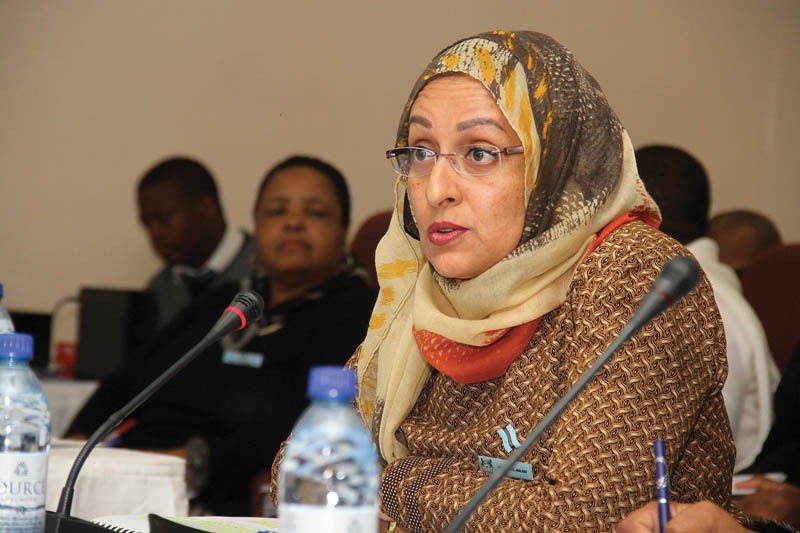New national cancer cases top 1,000 annually
Baboki Kayawe | Thursday September 8, 2016 15:34


Ministry of Health permanent secretary, Shenaaz El-Halabi said the “sobering reality” was accentuated by limited awareness among patients on cancer and cancer risk factors, weakened social structures and individual empowerment, limited skills and knowledge of clinical personnel, as well as inconsistent supply of medicines and reagents.
According to the Botswana National Cancer Registry, over 16,500 people were diagnosed with cancer between 2003 and 2012. “Countless die with the majority having been diagnosed late,” said El-Halabi.
“We need to better understand the gaps so that we can accelerate efforts to reduce cancer mortality and morbidity. This meeting is a critical step in that direction for cancer, and is part of broader national strategy planning for the prevention and control of Non-Communicable Diseases.”
El-Halabi called for partnerships and multi-sectoral participation saying this was crucial in improving the lives of Batswana as “health is not made in the health sector alone”.
Among the thousands of cancers diagnosed each year, cervical cancer is a leading type among women and a leading cause of death among HIV positive women in Botswana and the rest of Africa.
In 2015 Botswana rolled out the national HPV (human papillomavirus) vaccination, which reduces the lifetime risk of cervical cancer for future mothers. According to El-Halabi, over 70,000 girls have thus far been vaccinated. USA ambassador, Earl Miller noted that while there was progress, more could be done.
“Many patients are cared for late or not at all. Late diagnosis contributes to poor survival. Cancers diagnosed and treated early are more likely to be cured and therefore early detection can save more lives,” he said.
He added that prevention was the best medicine as it results in lower costs, and treatment lower in toxicity and less weakness.
Miller further said cancer was not the first major health challenge the US and Botswana have faced together. “Two decades ago the HIV epidemic posed an existential threat to Botswana. The country responded, in part, by forging strategic partnerships with leading institutions and, technical agencies of US government,” he said.
Through such collaborations, he said, the HIV response had not only saved hundreds of thousands of lives in Botswana but also generated important new knowledge that has spread around the world.
“Therefore, building upon the lessons and foundation of the past two decades, and further strengthening partnerships in cancer control, is critical.
“The best partnerships are broad, flexible and responsive. They align with national agenda and partake in coordinated collective effort,” he said.
“They should strengthen systems and communities and build capacity through transferring skills, infrastructure and individual empowerment.”
